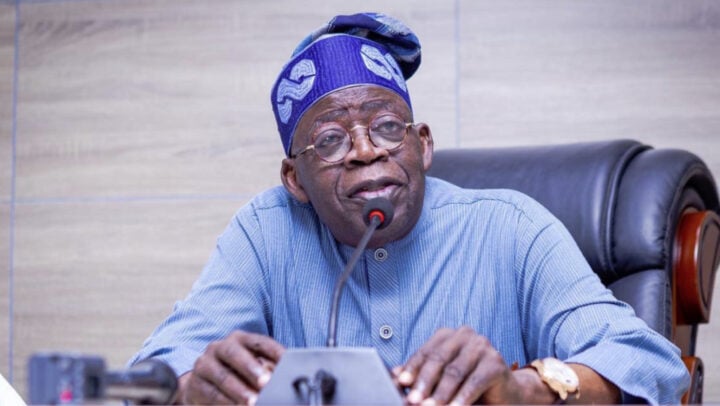Tinubu administration committed to honoring PPP agreements, says DG ICRC
The Director General, Infrastructure Concession Regulatory Commission (ICRC), Dr Jobson Oseodion Ewalefoh, has said President Bola Tinubu has not cancelled any Public-Private Partnership (PPP) project since assumption of office in May 2023.
He stated this to dispel insinuations that PPP projects are being cancelled by the present administration.
Speaking at the Nigeria Public-Private Partnership (PPP) Summit 2025 in Abuja, Dr Ewalefoh acknowledged that government is a continuum, adding that the present administration has rather revitalised and renegotiated PPP contracts to adapt to current realities.
The Director General underscored the need for ‘partnership spirit of PPPs’, which he emphasised, requires flexibility and continuous negotiation.
He said, “PPP contract is a living document that requires continuous negotiation and adaptation. When somebody said PPP contracts are being cancelled, as the DG of ICRC, President Bola Tinubu has not cancelled any PPP contracts since he became President of this country.
“What we have been doing is to renegotiate some of the contracts in view of the present realities. Even the ones that attempts were made to cancel, he has directed them back to us that we should find a way to make them work. And that is the spirit of PPP. It’s a partnership”.
With the theme: “Unlocking Nigeria’s Potential: The Role of Public-Private Partnerships in Delivering the Renewed Hope Agenda,” the two-day event, organised by the Infrastructure Concession Regulatory Commission (ICRC), brought together top policymakers, investors, international and local investors as well as prominent private sector leaders in infrastructure development within and outside Nigeria.
Speaking at a panel session titled ‘Maximising Nigeria’s economic potentials in the transport sector using PPPs: Focus on rail and road infrastructure’, the ICRC boss called for a paradigm shift in seeking perfection in PPP concession agreements, recognising that the underlying dynamics are constantly evolving.
He, therefore, called for flexibility, stressing that there can never be a ‘perfect concession on PPP agreements’.
“Having a good road network will attract businesses, factories, and investments, making it an economic enabler. Nigeria needs to take this more seriously.
“Let’s move away from trying to have a perfect concession on PPP agreements. It can never be perfect because the dynamics are not static, they evolve as time goes on.
“When projects fail, we often attribute it to poor feasibility studies or political interference. However, I believe we need to have in-depth research into how we categorise these studies, considering the changing economic landscape,” Ewalefoh said.
Other panellists, including the Managing Director, Bethlehem Rail Infrastructure Limited, Rowland Ocholi; Past President, Permanent International Association of Road Congress, Nasir Alli; Senior Partner, Africa 50 Infrastructure Acceleration Fund, Opuiyo Oforiokuma; Managing Director, Catamaran Nigeria Limited, Lai Are; Managing Director, Africa Plus Limited, Adeniran Ajakaiye, as well as the Managing Director/CEO, Federal Roads Maintenance Agency (FERMA), Engr. Chukwuemeka Agbasi underscored the significance of PPPs in Nigeria’s economic planning.
The session also explored ways to maximise Nigeria’s economic potential through strategic partnerships.
Also, at another session titled ‘Case Studies on PPP projects’, panellists shared experiences and lessons learned from various Public-Private Partnership (PPP) projects, highlighting successes, challenges, and best practices in implementing them.
PPP projects analysed included the Wind Power Project, Cape Verde; Sene-Gambia Bridge Project, Senegal as well as the Lekki Deep Sea Port Project, Nigeria.
In their separate interventions, the Chief Executive Officer, Fourcore Integrated Services, David Ibhawoh; Associate Vice President, Africa Finance Corporation, Sulaiman Cisse and Director PPP Gambia, Lamin Fatty, analysed the benefits and drawbacks of different approaches, and offered insights on how to improve future PPP projects.
Specifically, they dissected successful PPP models and their key features, common challenges and obstacles in PPP implementation, strategies for effective risk management and allocation, the importance of stakeholder engagement and community participation and lessons learned from past projects and how to apply them to future initiatives.
They noted that effective PPPs require careful planning, robust risk assessment, and strong stakeholder engagement to ensure successful project delivery and sustainable benefits.
Fatty stated: “99.9% of all assets that generate income are not being managed effectively by the government. Governments have limitations in controlling assets efficiently. It’s better to hand them over to the private sector, which can manage them more effectively.”













